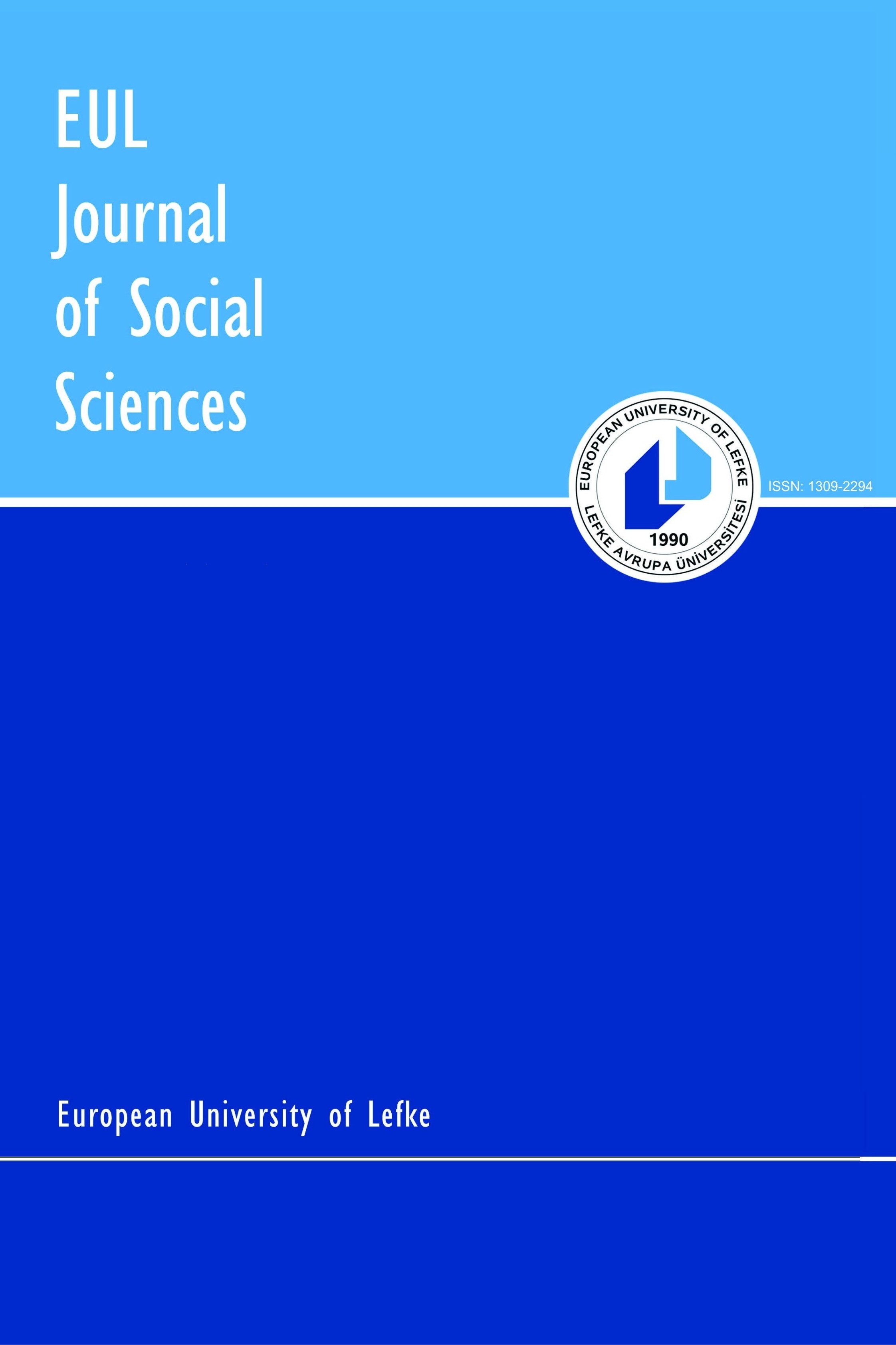ÇOCUĞU KAYNAŞTIRMA SINIFINA DEVAM EDEN EBEVEYNLERİN TÜKENMİŞLİK DÜZEYLERİNİN FARKLI DEĞİŞKENLERE GÖRE İNCELENMESİ
: Bu çalışmanın amacı, KKTC’de çocuğu kaynaştırma sınıfına devam eden ebeveynlerin tükenmişlik düzeylerinin farklı değişkenlere göre incelenmesidir. Araştırma 2019-2020 eğitim-öğretim yılı içerisinde KKTC Milli Eğitim ve Kültür Bakanlığı İlköğretim Dairesine bağlı kaynaştırma uygulaması yapılan genel eğitim sınıfına devam eden özel gereksinimi olan çocukların ebeveynlerine Google form aracılığı ile internet üzerinden uygulanmıştır. Araştırmada 150 ebeveyne ulaşılmıştır. Araştırmanın yönteminde nicel araştırma yöntemlerinden ilişkisel tarama modeli kullanılmıştır. Çalışmada “Aile Demografik Bilgi Formu” ve “Maslach Tükenmişlik Ölçeği-Ebeveyn Formu” kullanılmıştır. Araştırmanın bulgularına göre ebeveynlerin yaş, çocuk sayısı, annenin haftalık çalışma saati, babanın haftalık çalışma saati ve aylık hane geliri değişkenlerine göre anlamlı farklılıklara rastlanmıştır. Cinsiyet ve medeni durum değişkenlerine göre anlamlı bir farka rastlanmamıştır. Ebeveynlerin yaş ve çocuk sayısı değişkenlerine göre ölçeğin alt boyutundan kişisel başarı hissi alt boyutundan aldıkları puanlar arasındaki farkın istatistiksel olarak anlamlı olduğu saptanmıştır. Üç ve üzeri sayıda çocuğu olan ebeveynlerin kişisel başarı hissi alt boyutundan aldıkları puanlar diğer ebeveynlere göre daha düşük bulunmuştur. Annenin haftalık çalışma saatine göre Maslach tükenmişlik ölçeği genelinden ve kişisel başarı hissi alt boyutlarından aldıkları puanlar arasındaki farkın istatistiksel olarak anlamlı olduğu saptanmıştır. Annenin haftalık çalışma süresi 40 saat olması halinde Maslach tükenmişlik ölçeği puanları yüksek, kişisel başarı hissi puanları daha düşük bulunmuştur. Sonuç olarak, ebeveynler çocukların bakım ihtiyaçlarını karşılayabilmek için işten ayrılmak durumunda kaldıklarını ancak maddi açıdan daha da zorlandıklarını ifade etmişlerdir. Yetersizliği olan çocukların öz bakım gereksinimlerinin daha fazla olması ve eğitimlerinin normal gelişim gösteren çocuklara göre daha maliyetli olması sebebiyle aileler daha yüksek düzeyde tükenmişlik yaşamalarına sebep olduğu düşünülmektedir.
Anahtar Kelimeler:
Kaynaştırma, ebeveyn, tükenmişlik, özel eğitim, Inclusion, parent, burnout, special education.
INVESTIGATION OF THE BURNOUT LEVEL OF THE PARENTS WHO CONTINUES THE INCLUSIVE CLASS, ACCORDING TO DIFFERENT VARIABLES
The aim of this study is to examine the limits of parenting that attends the inclusion class in TRNC according to different variables. The research was applied to the parents of the children with special needs who attend the general education class, which is affiliated with the TRNC Ministry of National Education and Culture Elementary Education Department, in the 2019-2020 academic year, via the Google form. 150 parents were reached in the study. Relational survey model, one of the quantitative research methods, was used in the research method "Family Demographic Information Form" and "Maslach Burnout Scale-Parent Form" were used in the study. According to the findings of the study, significant differences were found according to the age of the parents, the number of children, the weekly working hours of the mother, the weekly working hours of the father and the monthly household income. No significant difference was found according to gender and marital status variables. According to the variables of age and number of children, the difference between the scores of the parents in the sub-dimension of the sense of personal accomplishment was found to be statistically significant. The scores of the parents who have three or more children in the sense of personal accomplishment sub-dimension were found to be lower than the other parents. It was determined that the difference between the scores of the mother's overall Maslach burnout scale and the sub-dimensions of the sense of personal accomplishment according to the weekly working hours was statistically significant. If the mother's weekly working time was 40 hours, Maslach burnout scale scores were found to be high and personal accomplishment scores were found to be lower. As a result, parents stated that they had to leave their jobs to meet their children's care needs, but they had more financial difficulties. It is thought that families with disabilities experience higher levels of burnout because their self-care needs are higher and their education is more costly than children with normal development.
Keywords:
Kaynaştırma, ebeveyn, tükenmişlik, özel eğitim, Inclusion, parent, burnout, special education.,
- ISSN: 1309-2294
- Yayın Aralığı: Yılda 2 Sayı
- Başlangıç: 2010
- Yayıncı: Lefke Avrupa Üniversitesi
